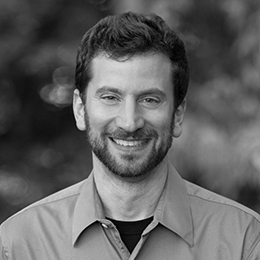“Intelligent Design” Is about Religion versus Reason
In his Dec. 2 Op-Ed, “Atheists can’t prove it, either,” Robert Camp criticized my Nov. 17 lecture in Irvine on “intelligent design” creationism, though without mentioning me by name.
Camp was unhappy that, in addition to discussing the flaws of “intelligent design,” I also criticized religion in general. The creationism controversy, he feels, is a “scientific and pedagogical issue,” not a clash between reason and religion.
But the view that “intelligent design” is a scientific position, to be answered with scientific arguments, is — as I explained in my talk — precisely the view its promoters are desperate to convey. Though they have no data supporting their claims, their arguments are carefully calculated to appearscientific and non-religious. Why? In hope of skirting the constitutional ban on religion in public schools. This is why the title of my lecture (which Camp also failed to mention) was “Creationism in Camouflage: the ‘Intelligent Design’ Deception.”
What makes “intelligent design” an inherently religious viewpoint is its appeal to a supernatural “designer.” This appeal brings it directly into conflict with reason, because the very notion of the supernatural — of something “beyond” nature that defies natural laws — is a contradiction. As I argued in my lecture, one cannot properly oppose the efforts of “intelligent design” creationists without rejecting their attempt to make the “supernatural” part of science.
Although Camp, himself, claims to be “intellectually opposed to supernatural ideas,” he finds it troubling that I would dare to proclaim in a public lecture that the idea of the “supernatural” provably contradicts the facts of reality. Ssshhh! Don’t let the religious folks hear you!
Especially troubling to Camp, was my rejection of the belief that supernaturalism is necessary for morality — the belief that without God there can be no absolute standards of right and wrong. “The last thing we need,” he explains, “is a bunch of people who believe they have no internal moral compass to be running around without their external one.”
What he ignores, however, is the possibility of a scientific, provable code of ethics — a moral philosophy based neither on subjective, “internal” feelings nor on “external” religious dogmas. A particularly telling omission was Camp’s failure to mention that my lecture was sponsored by The Ayn Rand Institute (my employer). This is relevant because Ayn Rand’s ethic of rational egoism provides precisely the alternative moral system that Camp ignores in his critique.
Rand locates absolute standards of right and wrong in the objective requirements of human life. In her view, morality arises from the fact that we, like all living beings, must pursue values in order to survive. Unlike the lower animals, however, we are not pre-programmed for survival. To define our values and guide our choices in life, we need a code of moral principles — principles based on the unalterable facts of human nature and of man’s long-range survival needs.
Rand’s ethical system — and, more generally, her philosophy of Objectivism — comprises the positive message underlying the ideas in my talk. But apparently, it is the very advancement of a positive system of philosophy that Camp really objects to. He finds it “reasonable” to be an atheist, but not to defend the view that atheism, or any other idea in philosophy, is a provably rational viewpoint. “I think they’re wrong, too,” he says, “but there is no, nor can there be, proof of it.” Strangely, he seems to think it is “unreasonable” to defend the importance of reason.
What his viewpoint dismisses is the essential difference between reason and faith. In reason, one accepts only conclusions one can prove to be true — conclusions based on sensory evidence and logical inference from such evidence. Faith, on the other hand, is belief unsupported by facts or logic — the blind embrace of ideas despite an absence of evidence or proof.
The only ideas that are reasonable to believe are those you know to be true by means of reason. And when you know them to be true, it is perfectly reasonable to argue in their defense and fight against false ideas, like creationism, that stand opposed to them.


